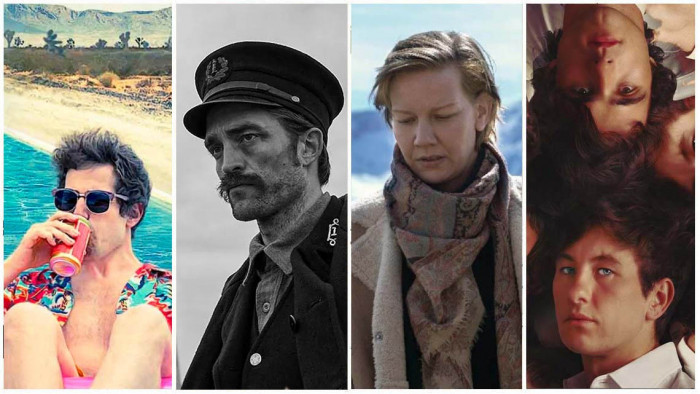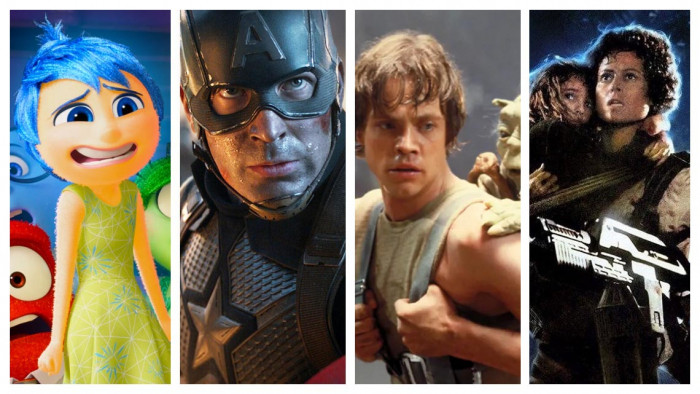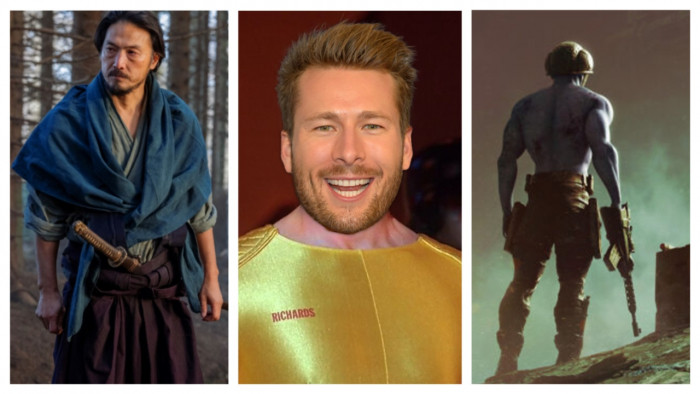As the star of The BFG, Mark Rylance has swapped the Bard for the blockbuster. Ralph Jones meets the legendary actor whose time is now
Even giants start small. As a child, Mark Rylance would appear every year in the nativity plays organised by his church. But, because his mother directed them, he couldn’t exactly swagger around as Joseph, the best part. There was only one option left for this towering heavyweight of the Hollywood stage. “I was the shepherd for fucking ages,” he says.
Since leaving school and landing roles in productions that have tended not to be directed by his mum, Rylance has quietly become a phenomenon. When he signs on to a project, engravers begin carving an ‘M’ and then an ‘A’ into that year’s batch of awards. In Jez Butterworth’s play Jerusalem he set the world alight. As Thomas Cromwell in the BBC’s Wolf Hall he won a Bafta along with millions of hearts. And now, thanks to Steven Spielberg’s Bridge Of Spies, he’s an Oscar-winner.
Once considered a man of the stage, this humble 56-year-old is now hunted like an exotic bird by Hollywood’s greatest directors. This may have something to do with the fact that he is routinely called the finest actor on the face of the Earth.

ENGLISHMAN IN NEW YORK
Walk into a room with Mark Rylance in it and for a few seconds you will be taken aback by just how gentle he is. His inch-thick eyebrows, like caterpillars doused in soot, seem resolutely raised in an expression of near-permanent surprise – as though the person he is speaking to is wearing a strange hat and he’s not sure whether to mention it or not. He’s wearing a dark red shirt, sleeves folded up to the elbow, and two bracelets on his left wrist like a teenager recently back from a gap year. Today, no trademark trilby perches on his head. He looks altogether different without it, his thinning hair having forgotten to tell his boyish face how old he is.
We’re in New York, in a hotel within spitting distance of Central Park. Giving interviews always looks a touch more awkward for Rylance than for many of his contemporaries. He sounds almost as though he is trying to convince himself when he says, “Look, this is lovely. It’s a lovely day outside the window. I’m having nice conversations with people.” Despite the certainty that he would rather be onstage (he is in a run of Nice Fish at a Brooklyn theatre), Rylance is engaged and engaging.
I’m drinking tea with Rylance because on 22 July he stands as tall as a house in Disney’s live-action The BFG, directed by Steven Spielberg. This is, perhaps surprisingly, the first of his films – he has appeared in 15 since 1985 – in which he is lead billing. He is the one carrying the film. He is the big name. Mark Rylance has arrived.
I tell Rylance that Roald Dahl’s The BFG is my favourite childhood book. “Gobblefunk,” he says. He does so not because he’s suddenly gone insane but because it is an example of the idiosyncratic speech Dahl uses in The BFG and other stories. Before I know it, Rylance and I are saying ‘frobscottle’ and ‘snozzcumber’ at each other. We sound like members of a cult. He wonders aloud how the film’s gibberish will be translated for a German audience. Language is important to him. “I think you can look like a trusted person but to actually have the sound of an honest person, it’s a little harder,” he says. “Hearing is a very good sense to develop as a truth monitor.”
When accepting awards in the US (often with cryptic, perfectly learned speeches), Rylance’s accent blends into its surroundings. Speaking to me, however, he adopts the enigmatic inflection of a man who has called both the US and the UK his home. (He moved with his family to Connecticut at the age of two.) His voice takes a tour around England, Ireland and the US, never settling in any one place. He speaks softly, as if trying not to wake a baby asleep in the same room, occasionally peppering his answers with breathy little slow-motion chuckles.
It is difficult to picture this former artistic director of the Globe Theatre flailing around in a motion-capture suit and helmet. But Rylance describes the high-tech filming of The BFG as “liberating”. He says, “You have to do a whole little dance in the morning and have a lot of pictures taken of you so that the computer recognises you. Once that computer person is woken up you walk on to what’s called ‘the volume’, which is the particular stage with a lot of infrared cameras aimed at you. And then everything you do is recorded from every angle. There’s no camera; there’s no lighting. You can do anything.”

TWO OF THE BEST
A fan of Rylance’s since the late Eighties, Spielberg tried for years to cast him in a film. What is it like working together? “My wife says plays are always like the director. And films are probably like the director, too. Steven’s films are generally about goodness prevailing over evil. I think he has great hope and faith and belief in the goodness of people. He’s really, truly interested in the audience. Some directors don’t care about the audience.”
Another director who was eager for a slice of Rylance is Christopher Nolan, whose upcoming film Dunkirk stole headlines chiefly for starring Harry Styles with a drastic haircut. Rylance, somewhat endearingly, seems to think that Harry Styles, one of the most famous men on the planet, is called Harry Style. “My 11-year-old niece is over the moon and now wants to visit me on set,” he says. “I don’t know if I’ll appeal to the people who like Harry Style.” He says he might wear the pop star’s shorn curls as a wig. Perhaps he could make a bit on the side by flogging it? “Yeah!” he cries. “Boy, you could sell it strand by strand.” His face crinkles up like wrapping paper.

HUMBLE BEGINNINGS
The world of David Mark Rylance Waters hasn’t always been Spielberg and Styles. In his late teens he hoped just to make a living from acting, certain that even if he didn’t, he would pursue it ferociously whenever he had the time. When he was 12 he heard other children referring to him as ‘the actor’ and realised then that might be what he was. “So strange now to think of that,” he says. “How surprised that 12-year-old would be that I’m sitting here in a hotel talking to you about being an Academy Award winner.”
In the Eighties he put himself forward for a production of the musical Candide in Birmingham, his audition piece an ode to a woman reviled by others. A light bulb pinged above his head. “I know,” he said, “I’ll get an old mac and a hat and I’ll get a blow-up sex doll and I’ll sing the song about the blow-up sex doll.” Into a Soho sex shop he went. “Have you got any blow-up sex dolls?” he enquired. “Yeah, in the back,” said the man, ushering him through. “Do you want two-hole or three-hole?” he asked. In a world of his own, Rylance stared at the dolls, thinking about his audition. Which doll would have the right shade of hair for the stage lights?
He chose one, paid, and innocently began to walk out, past the other customers. Now, telling the story, the animated Rylance stands up, giggling like a schoolboy. “As I went out the door,” he says, “I heard one of them say, ‘Dirty fucker.’ That was the first time I realised what it had been like from their perspective.” He didn’t get the part.
Now that plastic dolls in porno shops are behind him, Rylance has to adjust to the glitz and glamour of the Hollywood machine – a world in which he is a little incongruous. He still cannot believe that A-listers recognise him at awards ceremonies. “Sylvester Stallone, when he won the Golden Globe, came over to me with his little entourage and knew who I was. Sylvester Stallone!”
When Rylance beat Stallone to the Oscar, industry bible Deadline (another endearing Rylance feature is that he has no idea what Deadline is) commended him for not ‘buying’ his award by going on the standard self-promotional campaign. Rylance mentions meeting Leonardo DiCaprio backstage at the Oscars: “I could see he was exhausted. It was like a marathon runner looking at the finish line: he’d reached the stadium and it was all going to end in a moment. For someone as talented and experienced as him, to have to go around begging people and entertaining them and doing the schmoozing, seems to me a bit of a shame. You don’t want to win the FA Cup because you’ve schmoozed with all the voters, so to speak.”
This is Rylance in a nutshell. However lauded and applauded he is; however many red carpets he treads; what matters is the work. In the nativity of the film world, Rylance is a wise man. To many he’s something of a messiah. But one thing’s for sure: he’s not a shepherd any more.
The BFG is at cinemas nationwide from 22 July

(Images: Benedict Evans (main portrait), Rex, Kobal, EOne)
Latest
Related Reviews and Shortlists


The 10 best war movies of the 21st century









